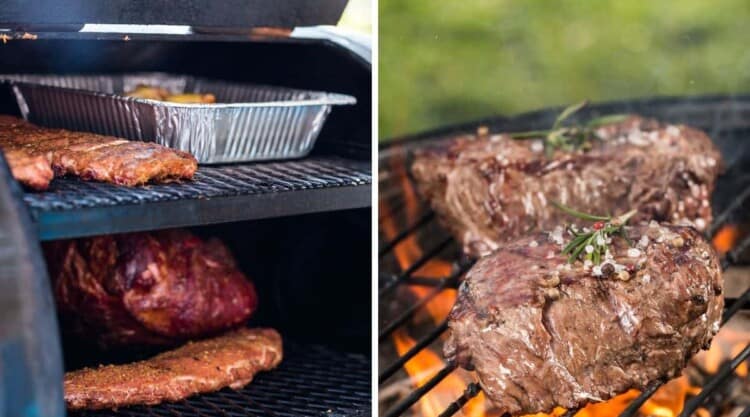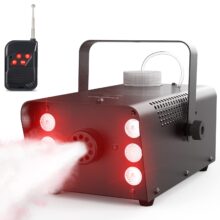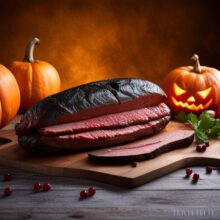The Differences Between Smoking and Grilling

When it comes to entertaining in the summer, you can’t go wrong with a grill. You can grill meat, vegetables, corn, and more. While grilling foods doesn’t have the same flavor and texture as a traditional oven, it does deliver a more tender result. Unlike a conventional oven, you have to turn the foodstuffs on a grill pan, which gets direct heat from the fuel.
Smoking vs grilling
If you’re deciding between smoking and grilling, you need to know the differences between the two. Smoking involves using smoke to impart a flavor to food. It is generally used on fish, meat, and cheese. While grilling can also be used on fruits and vegetables, smoking can give your food an unrivalled smoky taste. Listed below are the differences between smoking and grilling. To learn more about the differences between these two methods of cooking, read this article.
While grills and smokers both give meat a smoked flavor, a smoker is best for long cooking and is essential for creating the signature barbecue flavor. Smokers can be used by themselves or in combination. Charcoal grills need to be large and made of good materials to withstand 24 hours of enclosed heat. While both methods of cooking produce delicious meat, smokers are the most popular method. In addition, charcoal grills require a larger space and be constructed of durable material, which allows the meat to cook more evenly.
Smoking uses low heat and smoke to create a flavorful, smoky flavor. Smoking uses indirect heat below 200 degrees. Smoked foods can also be flavored with sauces and infused with smoky flavor. While grilling is a great way to cook tougher cuts of meat, smoking is better for more delicate cuts of meat. The lower heat also helps break down the collagen in the meat.
The major difference between grilling and smoking is the duration of cooking. Smoking takes longer than grilling, often several hours. The difference in cooking time depends on the meat and the amount of smoke. However, smokers produce meat with a tender, moist texture and perfect balance of juiciness. While grilling can result in a better taste and texture, smoking allows the meat to retain moisture, allowing you to control its temperature for longer.
Direct vs indirect heat
The best grill cooks know the difference between direct and indirect heat when grilling. Food cooked on the grill using direct heat is more tender, has a better color, and tastes better. Direct and indirect heat refer to the placement of your food on the grill. Direct heat is the quickest way to cook your food, as it is close to the source of heat. Indirect heat uses lower heat and allows you to close the lid while the food cooks.
Indirect cooking is more common for larger cuts of meat and foods that require a longer cooking time at lower temperatures. Because of the reflected heat, indirect cooking produces juicier meat. The only catch to indirect cooking is that you need to use a covered grill. You don’t want to peek during cooking, so you should always use a lid while grilling. However, this method also requires a longer cooking time, so it’s recommended for large cuts of meat.
When you’re grilling, the type of heat you use depends on the thickness of the food and the volume of the meat. Direct heat grilling is the simplest method, and works best for foods that can sear quickly and cook within twenty minutes. This method is a good choice for steaks and hamburgers, and most vegetables benefit from quick cooking on a hot grill. Direct heat grilling is also good for baking.
While you can use direct or indirect heat for most foods, direct heat is a better choice when cooking meat and vegetables. It allows you to control temperature better and get the perfect sear when your meat is almost done. Direct heat, on the other hand, requires regular checking. The intense heat from direct grilling can quickly dry out foods. For best results, always make sure to check your grill periodically to ensure it is getting the desired temperature.
Charcoal vs wood
There are many benefits to using wood for grilling over charcoal. Wood has a unique aroma and is all-natural. Charcoal is created from charred wood, but wood must be seasoned before being used. Freshly cut wood can cause uneven burning and produces dirty smoke that can affect the taste of your food. You should soak wood in water for a couple of hours before using it to grill.
Both wood and charcoal have pros and cons, but if you aren’t familiar with how to properly use them, you may end up ruining your food or even putting yourself at risk. Wood is a natural heat source that has thousands of compounds and is free from chemical additives. It can produce a deep, flavorful grilled food that will have everyone talking about the delicious taste. If you are unsure of which one to use, try the following tips and tricks.
– Wood is the more environmentally friendly option. Charcoal is easier to find. Charcoal can be purchased at any store for around $20. Wood also provides more heat than charcoal, which can be very nice when grilling with guests. Wood also lasts longer compared to charcoal. Charcoal burns for about half an hour. That’s a lot of time! Wood gives you the option of cooking more food on a single log.
Using wood is a great way to add flavor to your food. A quality wood chip will enhance the flavor of your food and give it a unique aroma. Many hardware stores sell wood chips for grilling. You can also buy high-quality wood chips online from companies like Cutting Edge and Smoak. Make sure to add two or three pieces of wood per chimney of charcoal. More wood means more smoke!
Charcoal vs gas
If you’re trying to decide between a charcoal grill and a gas grill, you’re not alone. Many people debate the merits of each, and there are definite pros and cons to both. Which is better? Let’s take a look! And don’t forget to make your decision based on safety. The first thing you need to remember when deciding between a gas grill and a charcoal grill is that both can produce smoke.
Ultimately, your choice will come down to personal preference. If you enjoy smoky flavor, charcoal will be the better choice. However, gas grills can be convenient for busy families. The downside of a gas grill is the cost of fuel. Gas grills tend to burn cleaner than charcoal, so if you’re worried about the price of charcoal, go for a gas grill instead. Depending on the size of your grill, it may be more expensive than a charcoal grill, so make sure you’re prepared to spend a little extra money on charcoal.
If you don’t want to worry about cleaning up after your barbecue, a gas grill is the healthiest option for grilling outdoors. It doesn’t emit carcinogens or use unsustainable gas fuels. Considering that these are better for the environment, it’s definitely worth it. However, many people prefer the convenience of gas grills. There’s no need to wait for coal to ignite – just plug it in and you’re ready to grill!
While gas grills offer easy temperature control, charcoal grills require manual work. Charcoal grills take about fifteen minutes to reach cooking temperature, and need to be manually heated with natural lump charcoal or condensed blocks of coal called charcoal briquettes. Charcoal grills can reach temperatures as high as 600 degrees Fahrenheit, which are perfect for searing your meat. But they require higher prices and require a large amount of manual labor.
Charcoal vs propane
If you’re in the market for a new grill, you might be wondering whether you should use charcoal or propane. While they are both acceptable grilling fuels, propane has its advantages over charcoal. Several factors come into play in making this choice. For one thing, propane offers the ability to regulate temperature, while charcoal doesn’t. Charcoal, on the other hand, requires you to add charcoal and then remove it every so often to regulate the temperature. Nevertheless, both grilling fuels can provide excellent results.
However, charcoal can be a little more complicated than propane. You must pay more attention to the heat coming from the grill, and it can develop hot and cold spots if you don’t monitor it properly. If you haven’t done so in the past, you can end up overcooking your food. Therefore, if you are serious about grilling, it might be a better idea to start with charcoal.
On the other hand, propane grills have a clear advantage in convenience. They heat up faster than charcoal grills, are easier to clean, and don’t produce as much smoke. Charcoal grills have the added advantage of being portable. However, charcoal grills are not as convenient for camping or other enclosed areas. If you’re trying to decide between charcoal and propane for grilling, you may want to use a portable one.
The disadvantages of using charcoal over propane grills are minimal and far outweighed by their benefits. However, one important factor to consider is the amount of smoke that you’ll create. Both fuels produce smoke, which may contain carcinogens. Nevertheless, both are safer than charcoal, and propane will also last longer. Aside from this, propane is also safer than charcoal, and you won’t have to worry about flammable gas. The gas grill will also be easier to turn than charcoal.
Read more great BBQ articles at Bob's BBQ Tips
Did you miss our previous article…
https://notoriousbob.net/?p=1753



